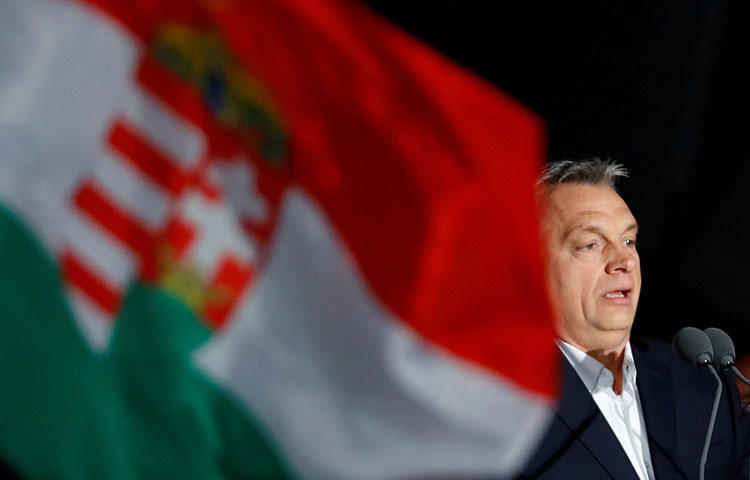Attila Mong/CPJ Europe Representative
Attila Mong is a freelance journalist and CPJ’s Berlin-based Europe representative. He is a former John S. Knight Journalism Fellow and a Hoover Institution research fellow, both at Stanford University. In Hungary, he was awarded the Pulitzer Memorial Prize for Best Investigative Journalism in 2004 and the Soma Investigative Journalism Prize in 2003.

Bulgaria’s press navigate harassment, threats in pursuit of stories
In October 2018, Viktoria Marinova, a host for TVN, was raped and murdered near the station’s studios. When CPJ’s Europe correspondent, Attila Mong, spoke with her colleagues and other journalists during a trip to Bulgaria last month, they said that while they don’t believe the attack is linked to Marinova’s work, it has highlighted the…

In Romania, EU data protection law used to try to muzzle Rise Project
Finding a suitcase full of documents is every journalist’s dream. But for the investigative outlet Rise Project, it quickly turned into a legal nightmare after Romanian authorities filed a complaint under the EU General Data Protection Regulation (GDPR) ordering the outlet to reveal its sources or pay a fine of up to 20 million euros…

Gagging orders, legal action, and communist era laws used to try to ‘choke’ Polish press
Polish security agents enter the house of a prominent TV journalist over accusations that he propagated Nazi propaganda. Police summon a reporter over claims that he breached the privacy of the vice-head of the constitutional court. And Poland’s central bank files gagging orders against two papers, demanding they remove several articles about a corruption scandal…

Independent journalists in Hungary brace for tough times in next Orbán term
As Hungary’s new Parliament holds its first session, where Prime Minister Viktor Orbán is due to form his third consecutive government after a landslide re-election a month ago, journalists critical of his power will closely monitor his words for hints of what awaits them in the next four years.

Mission Journal: In Poland, some journalists fear worst is yet to come
Entering the historic site of the Gdansk shipyard, one cannot miss the wooden boards hanging over the famous gate No. 2. Handwritten in 1980, they display the list of demands of the strikers led by Lech Walesa, the founder of Solidarity, the independent trade union movement that pushed for social change in communist Poland. Number…

As German hate speech law sinks Titanic’s Twitter post, critics warn new powers go too far
The satirical magazine Titanic appears to have been an unlikely victim of Germany’s recently adopted online anti-hate speech law, NetzDG. “We were truly surprised,” the magazine’s editor-in-chief Tim Wolff told CPJ, as he explained how Twitter blocked the Titanic account for 48 hours after the magazine republished a post Twitter had deleted, in which Titanic…
